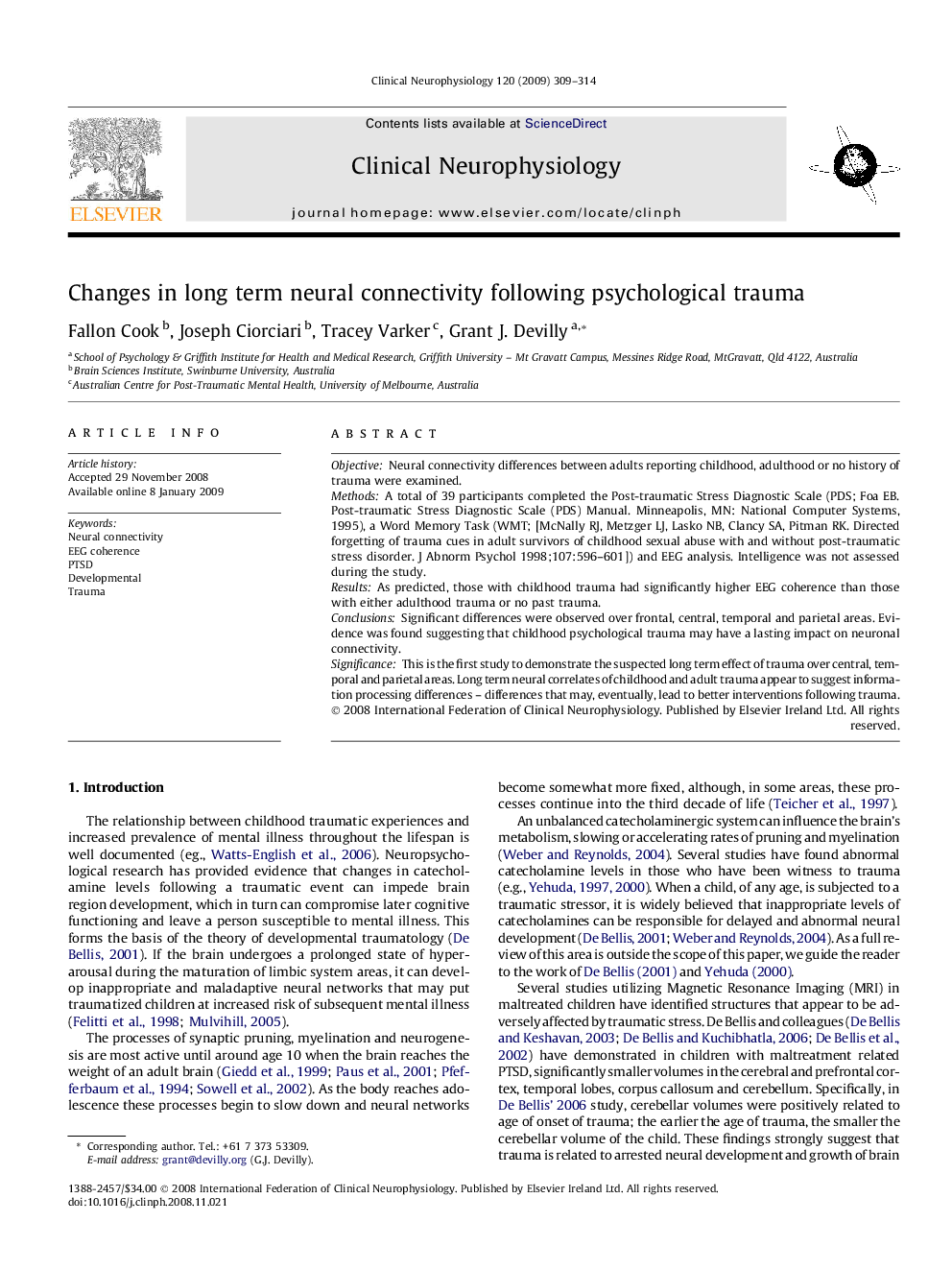| Article ID | Journal | Published Year | Pages | File Type |
|---|---|---|---|---|
| 3047125 | Clinical Neurophysiology | 2009 | 6 Pages |
ObjectiveNeural connectivity differences between adults reporting childhood, adulthood or no history of trauma were examined.MethodsA total of 39 participants completed the Post-traumatic Stress Diagnostic Scale (PDS; Foa EB. Post-traumatic Stress Diagnostic Scale (PDS) Manual. Minneapolis, MN: National Computer Systems, 1995), a Word Memory Task (WMT; [McNally RJ, Metzger LJ, Lasko NB, Clancy SA, Pitman RK. Directed forgetting of trauma cues in adult survivors of childhood sexual abuse with and without post-traumatic stress disorder. J Abnorm Psychol 1998;107:596–601]) and EEG analysis. Intelligence was not assessed during the study.ResultsAs predicted, those with childhood trauma had significantly higher EEG coherence than those with either adulthood trauma or no past trauma.ConclusionsSignificant differences were observed over frontal, central, temporal and parietal areas. Evidence was found suggesting that childhood psychological trauma may have a lasting impact on neuronal connectivity.SignificanceThis is the first study to demonstrate the suspected long term effect of trauma over central, temporal and parietal areas. Long term neural correlates of childhood and adult trauma appear to suggest information processing differences – differences that may, eventually, lead to better interventions following trauma.
